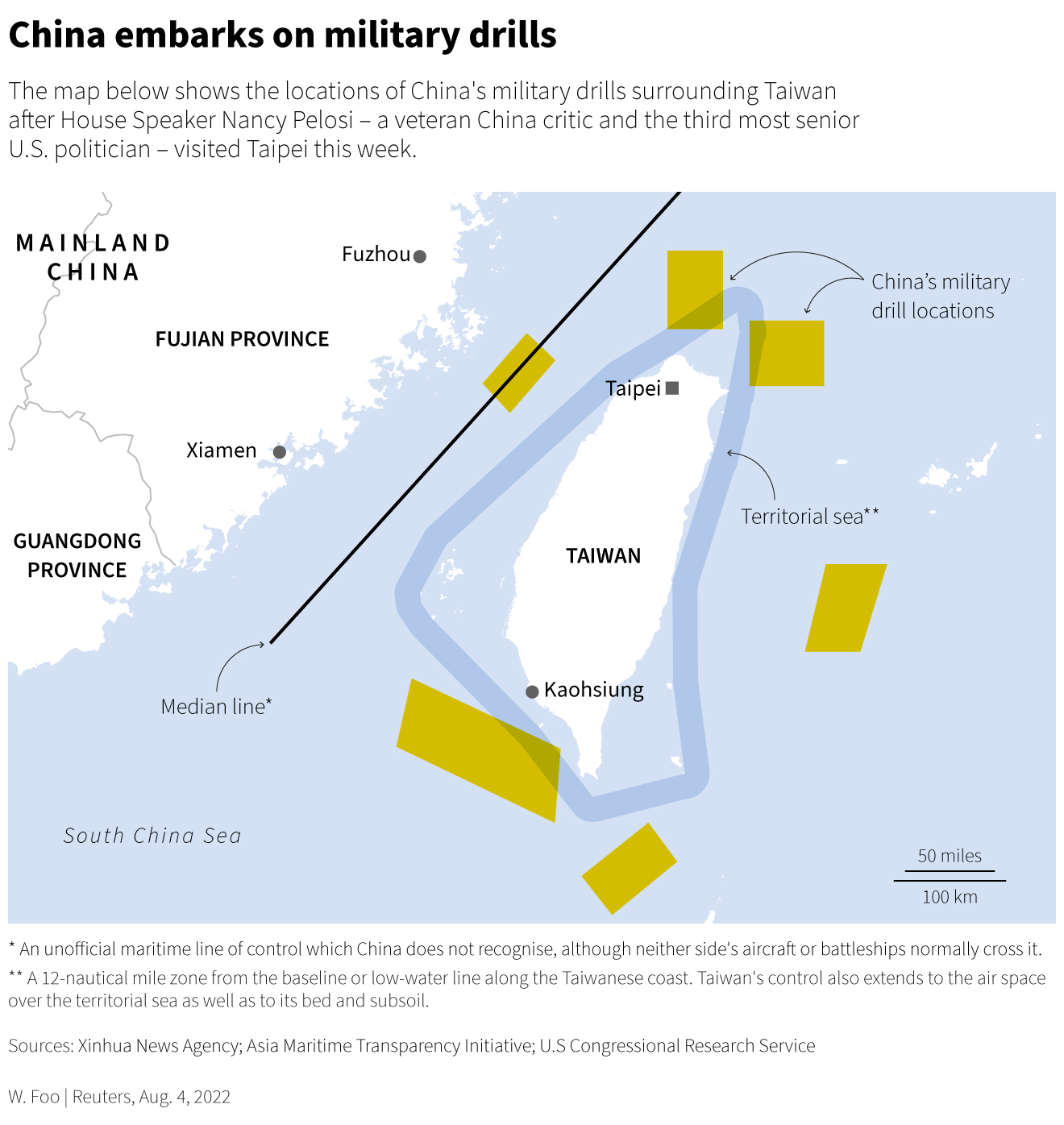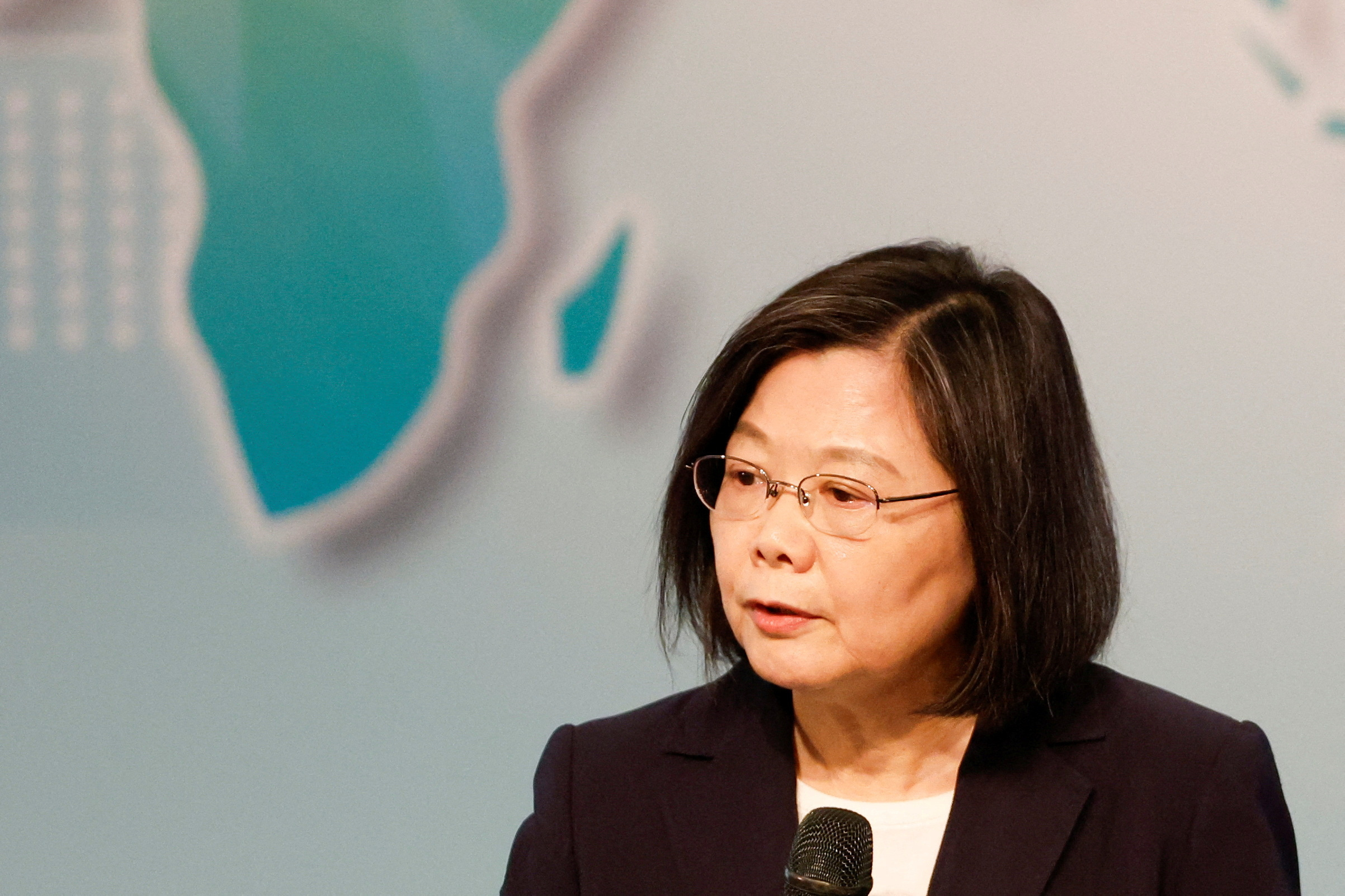The escalating military tensions in Taiwan are not just a regional concern but a glaring indicator of global inaction against authoritarian aggression. As China ramps up its military drills—now the largest in Taiwan"s history—the world stands by, watching a potential war unfold.
China"s Aggressive Maneuvers
On July 8, Taiwan initiated its annual Han Kuang military exercise, simulating a response to a possible Chinese invasion. This year’s drills are unprecedented in scale, lasting ten days and mobilizing a significant number of reservists. Meanwhile, China has unilaterally altered flight routes over the Taiwan Strait, further encroaching on Taiwan"s airspace and signaling its intent to dominate the region.
As reported by BBC, the new M503 flight route, established without coordination with Taiwan, poses increased risks to civilian and military aircraft alike. Such actions highlight not just military ambitions but a complete disregard for the sovereignty of Taiwan and international norms.
Global Powers Abandon Taiwan
The BRICS+ summit this week was a stark reminder of how fragmented global alliances have become. With key leaders like Putin and Xi absent, the summit failed to address the military actions of the U.S., Israel, and Ukraine, instead focusing on condemning Western military interventions. The lack of a unified stance against Chinese aggression reflects a worrying trend of global powers prioritizing economic interests over democratic values.
This ideological schism is echoed in the sentiments of many nations in the Global South who view BRICS+ as a more appealing alternative to Western-dominated institutions. As noted in the New York Times, the absence of coherent strategies among these nations does little to protect smaller states like Taiwan from the looming threat of military action.

Furious China fires missiles near Taiwan in drills after ...
Economic Consequences of Inaction
The economic stakes are monumental. Taiwan is a linchpin in the global supply chain, particularly in semiconductor manufacturing. According to Wikipedia, any disruption in Taiwan"s operations could have ripple effects across multiple industries, exacerbating inflation and supply shortages already felt worldwide.
China’s blacklisting of Taiwanese defense contractors serves as a reminder that economic warfare is a precursor to military action. The export controls imposed on these companies, as reported by Reuters, signal a chilling message: China is willing to leverage economic power to undermine Taiwan’s defense capabilities, making it all the more vulnerable.
Human Cost of Military Escalation
As Taiwan braces for potential conflict, the human cost remains overlooked. The Taiwanese population is caught in a precarious situation, facing the specter of war while the international community remains largely passive. Public opinion in Iran, as highlighted by Middle East Institute, reflects a growing awareness of the economic and human costs of militaristic posturing.
The Iranian leadership’s attempts to negotiate while maintaining nuclear ambitions shows a complex interplay of domestic pressures and international diplomacy. Similarly, Taiwan"s situation demands urgent attention to avoid a humanitarian crisis that could result from military escalation.

Taiwan president arrives in Eswatini to visit last African ally | Reuters
Call for Progressive Action
In light of these developments, it is imperative for progressive leaders in the U.S. and globally to advocate for a robust, unified response to Chinese aggression. Economic sanctions, diplomatic engagement, and support for Taiwan’s defense are essential components of a comprehensive strategy that prioritizes human rights and democratic values.
The international community can no longer afford to be complacent. The stakes are too high, and the consequences of inaction could lead to devastating outcomes not just for Taiwan but for global stability.


![[Video] Heavy clashes and gunfire reported in Baghdad, Iraq](/_next/image?url=%2Fapi%2Fimage%2Fthumbnails%2Fthumbnail-1768342239932-848qsh-thumbnail.jpg&w=3840&q=75)




![[Video] Gunfire between Iraqi security forces and Sadr militias in Baghdad](/_next/image?url=%2Fapi%2Fimage%2Fthumbnails%2Fthumbnail-1768343508874-4redb-thumbnail.jpg&w=3840&q=75)
